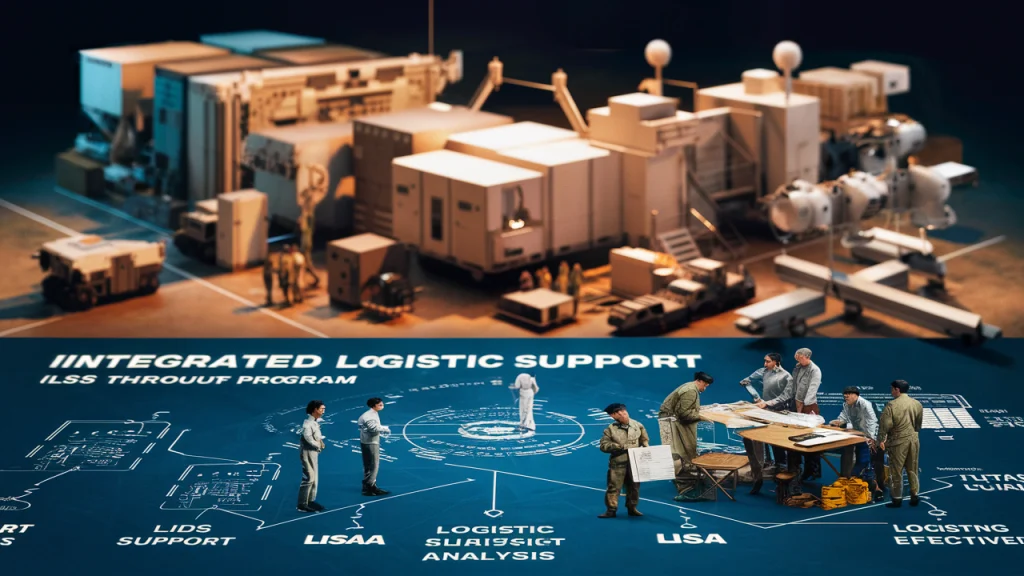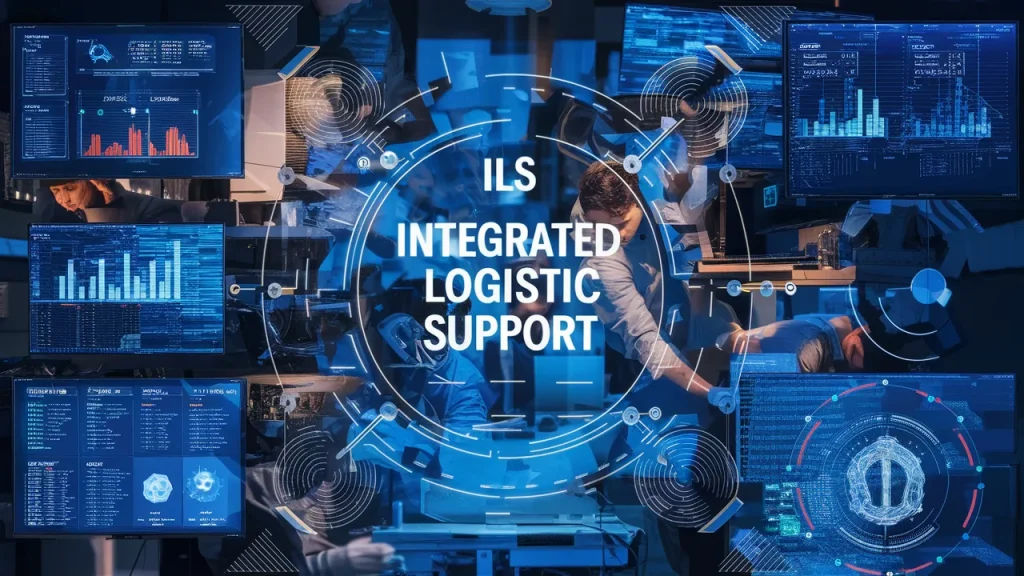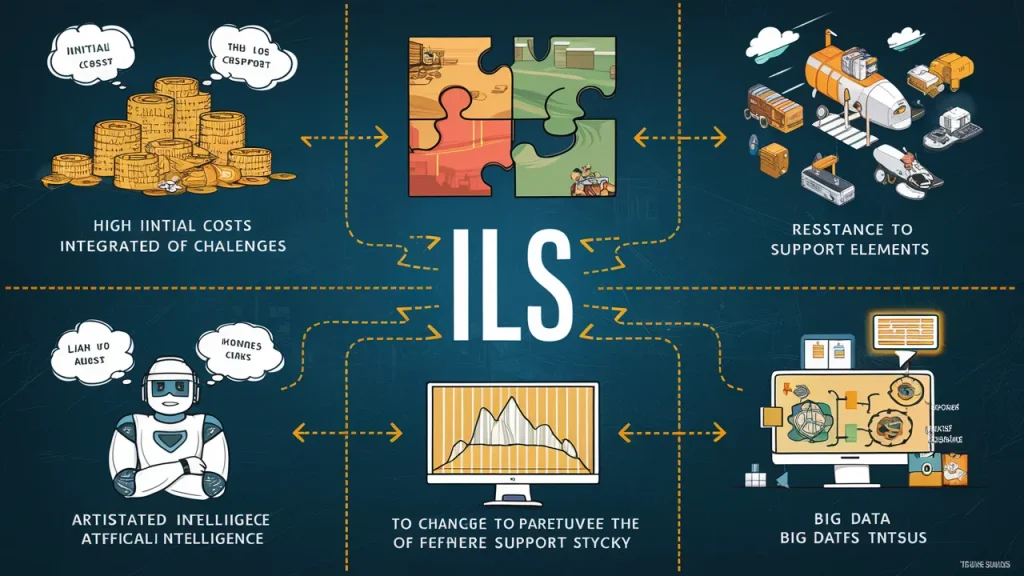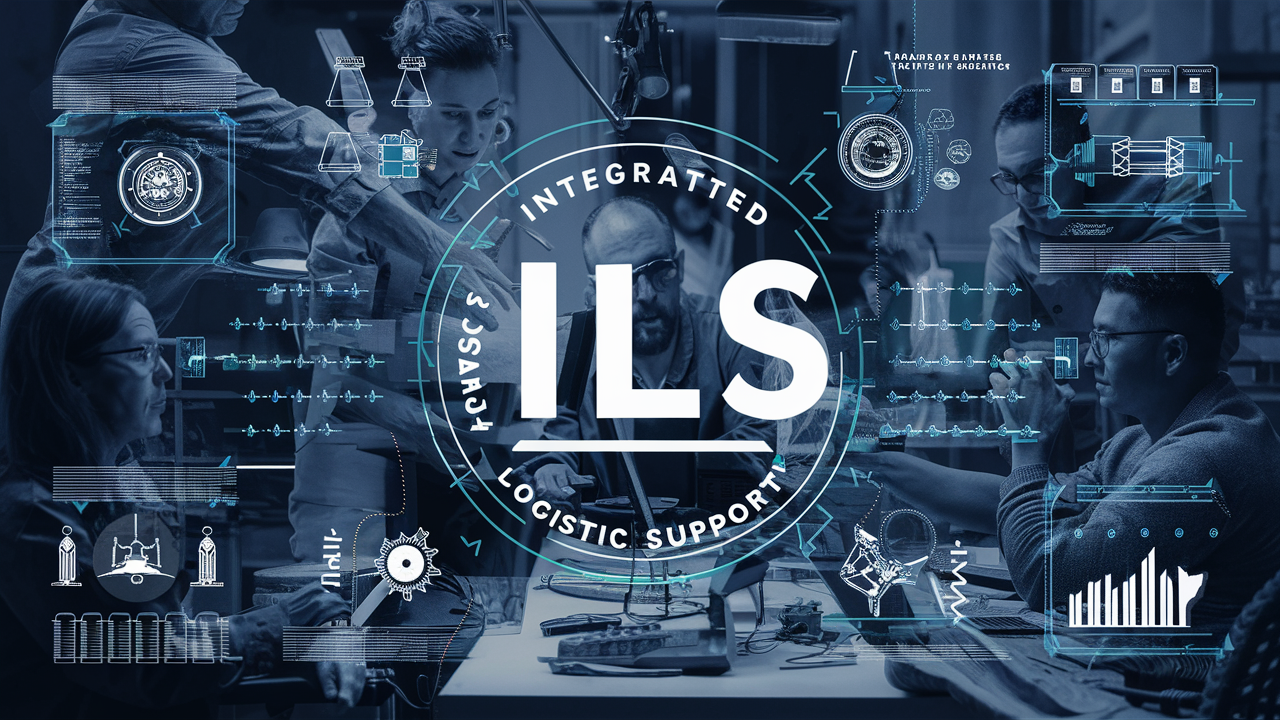Table of Contents
Introduction
Integrated logistic support is a functioning that ensures provision for all support elements of a system or product on its entire life cycle. It integrates factors such as maintenance, training and supply to achieve the level of support and support effectiveness. The objective of ILS is to improve low cost and customized system effectiveness with continuous availability.
The Importance of ILS Throughout a System’s Lifecycle
ILS initiates at the initial design support phase and runs through the system’s entire life cycle. It assists in making changes, adjustments, fixes, or any problem that arises with time. Systems that utilize ILS do not experience costly downtimes; rather, they sustain high standards of operation.
Key Elements of an Integrated Logistic Support Program

3.1 Logistic Support Analysis (LSA):
Identifying Support Needs
Logistic support analysis identifies a system support requirements. This is in the move that one gets to ensure that all the resources and procedures required by the system should be kept in good condition.
3.2 Supportability Engineering:
Designing for Maintainability
Supportability engineering is concerned with designing systems such that they are easily maintainable. This type of engineering design includes accessibility of parts and easiness of operations related to maintenance.
3.3 Provisioning:
Ensuring Spare Parts and Resources are Available
Provisioning makes sure spare parts and resources are ready when needed to avoid any delay in fixing something that might have broken down and to keep the system running.
3.4 Training and Technical Data:
Equipping Personnel for Support
raining and technical data mean giving people the knowledge and information they need. The right training means workers can run and look after the system well.
3.5 Maintenance Planning and Data Collection:
Optimizing Uptime
Planning maintenance includes periodic inspection and developing programs for servicing. The data collection helps to track the performance of the system and reveal any malfunction parts before breakdown.
Benefits of Implementing Integrated Logistic Support

4.1 Increased System Availability and Uptime
This contributes to IL to an increase in the availability of the system because it will be ready when it needs to be used. It reduces downtime, so keeps the operation operational.
4.2 Reduced Life Cycle Costs
Planning and management requirement of support needs from the beginning in ILS, including a decrease in total costs during the entire life cycle of a system, along with maintenance and repair -along with allocation of resource.
4.3 Improved System Reliability and Maintainability
ILS helps to make the system reliable by keeping it in a state of good maintenance and support. Thus, it leads to low failures and easy repair. Systems supported by ILS are always available for use;
4.4 Enhanced Operational Readiness and Efficiency
It describes operational efficiency. This means that organizations can rely on their system so that they can be expected from them.
Applications of Integrated Logistic Support
5.1 Manufacturing and Complex Systems
ILS plays an important role in preparing and working. It helps with maintenance and support, so everything is set for everything
5.2 Defense and Military Equipment
It helps with maintenance and support, so everything is set for everything
5.3 Aerospace and Aviation Industry
The aerospace and aviation industry uses ILS to maintain aircraft and related systems, ensuring safety and reliability.
Also Read: Logistics Planning.
Implementing an Integrated Logistic Support Program
To implement an ILS program, organizations need to:
- Conduct a Logistic Support Analysis (LSA)
- Design for maintainability
- Ensure provisioning of spare parts and resources
- Provide training and technical data to personnel
- Plan and schedule maintenance activities
Challenges of Implementing Integrated Logistic Support

Implementing ILS can face challenges such as:
- High initial costs
- Complexity in integrating various support elements
- Resistance to change from personnel
The Future of Integrated Logistic Support
The future of integrated logistics support lies in technological progress that includes large data for artificial intelligence and increased support processes. This makes the ILS process more efficient and effective.
Common Myths About Integrated Logistic Support Debunked
Some common myths about ILS include:
- It’s only for large systems (ILS can be applied to any system, big or small)
- It’s too costly (ILS can save money in the long run)
- It’s unnecessary for simple systems (Even simple systems benefit from ILS)
Resources for Learning More About Integrated Logistic Support
To learn more about ILS, consider these resources:
- Online courses on logistic support
- Industry journals and publications
- Workshops and seminars on ILS
Case Studies: Examples of Successful ILS Implementation
Case studies have been shared on successful implementation of ILS in various industries. Cases appropriately work to detect several benefits that are obtained from its adoption, besides showing the best practices around it.
Final Thoughts
Integrated logistic support is what the system makes the system reliable, efficient and cost effective on their life cycle. This allows an organization to keep its system at a high level of operation and avoid downtime -related costs.
FAQs:
What is Integrated Logistic Support (ILS)?
Integrated Logistic Support (ILS) is a method that ensures all parts of a system or product are supported throughout its lifecycle, enhancing reliability and efficiency.
Why is ILS important?
ILS is important because it reduces costs, improves system reliability, and ensures continuous availability by providing comprehensive support from design to decommissioning.
What are the key components of ILS?
The key components of ILS include maintenance planning, supply support, training and technical data, support equipment, and facilities management.
How does ILS benefit industries?
ILS benefits industries by increasing system uptime, reducing lifecycle costs, improving maintainability, and ensuring systems are always ready for operation.

